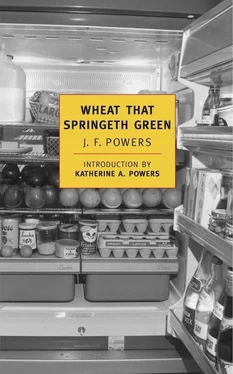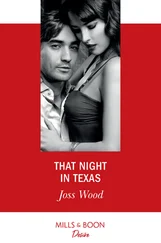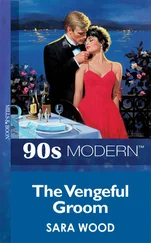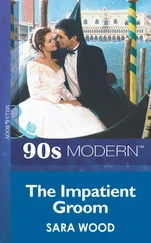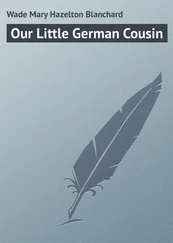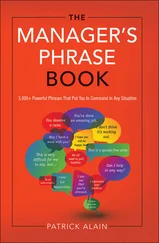J. Powers - Wheat That Springeth Green
Здесь есть возможность читать онлайн «J. Powers - Wheat That Springeth Green» весь текст электронной книги совершенно бесплатно (целиком полную версию без сокращений). В некоторых случаях можно слушать аудио, скачать через торрент в формате fb2 и присутствует краткое содержание. Год выпуска: 2000, Издательство: NYRB Classics, Жанр: Современная проза, на английском языке. Описание произведения, (предисловие) а так же отзывы посетителей доступны на портале библиотеки ЛибКат.
- Название:Wheat That Springeth Green
- Автор:
- Издательство:NYRB Classics
- Жанр:
- Год:2000
- ISBN:нет данных
- Рейтинг книги:5 / 5. Голосов: 1
-
Избранное:Добавить в избранное
- Отзывы:
-
Ваша оценка:
- 100
- 1
- 2
- 3
- 4
- 5
Wheat That Springeth Green: краткое содержание, описание и аннотация
Предлагаем к чтению аннотацию, описание, краткое содержание или предисловие (зависит от того, что написал сам автор книги «Wheat That Springeth Green»). Если вы не нашли необходимую информацию о книге — напишите в комментариях, мы постараемся отыскать её.
Wheat That Springeth Green — читать онлайн бесплатно полную книгу (весь текст) целиком
Ниже представлен текст книги, разбитый по страницам. Система сохранения места последней прочитанной страницы, позволяет с удобством читать онлайн бесплатно книгу «Wheat That Springeth Green», без необходимости каждый раз заново искать на чём Вы остановились. Поставьте закладку, и сможете в любой момент перейти на страницу, на которой закончили чтение.
Интервал:
Закладка:
That afternoon Joe ran into Brad on the Mall.
“Padre, you’ll be interested to know I’m no longer a member of the Episcopal Church.”
“That so? Excommunicated or what?”
“No, I left of my own free will.”
Joe, remembering how Brad had begun the conversation (“Padre, you’ll be interested to know…”), said, “Well, we don’t want you.”
“ We won’t get me. That’s a promise.”
“Promises, promises,” Joe said, and left Brad standing on the Mall, but called back to him, “ Ciao .”
About a week later, Joe learned that Brad’s wife, Barb, whose pleasure it was to sip cordials in the early afternoon while watching soap operas and then to go out shopping, had fallen and broken her left leg. That was bad enough. What made it worse was that Barb had fallen from a children’s slide in the Humpty Dumpty department at the Great Badger. And what made it worse was that, only months before, the Draper’s mother-in-law (like Barb, the Catholic party in a mixed marriage) had dropped dead at the Great Badger, in household appliances. Joe, who’d had the funeral, knew that the Great Badger’s offer to pay the undertaker had been poorly received, and likewise the big wreath, by the Draper, his wife, and the Mall crowd. That Barb had declined the Great Badger’s offer to pay her medical expenses was in her favor, but nothing else was. (Joe was thinking along such lines when he consented to autograph her cast.) Barb had bravely insisted that Brad not be told of her accident, but her son Greg had cabled him, and Brad had caught an early flight home (from Guam). Joe hadn’t seen him, but had seen the column and had wondered whether Brad, perhaps from the strain of working off Barb’s culpability with the Mall crowd (which probably couldn’t be done), might be cracking up. “National Read Week… is fast approaching and… among the many fine things… to be read these days are… church bulletins”—there was MORE, but nothing about the local bulletins having or not having “In the Service” departments. There seemed to be even more than before about the weather ball, Brad now calling it “old girl” and “Spaceship Inglenook” and using more dots.
On the evening of the day that HR 369 was in the news — it had been returned to committee — there was a phone call from Brad.
“Father, did you know you belong to the first estate?” It had been a long time, Joe thought, since Brad had called him Father.
“How’s that, Brad?”
“Yeah. As a member of the clergy. It came out in my research.”
“Research, Brad?”
“I’m doing a think piece on the fourth estate — the press.”
“Is this for the column, Brad?”
“No, no. It’ll be too exhaustive for that.”
“Brad, why not run it in the column as a— serial ? Give the weather ball a rest.”
In the ensuing silence Joe had time to regret his words.
“Father, I just thought you’d like to know you belong to the first estate. Did you know that?”
Joe did. “No, and it’s good to know, Brad. Thanks.”
“Yeah, well, I just thought you’d like to know, Father. Ciao .”
And that was all. Not a word about HR 369. Trying to mend fences. Poor devil.
10. GOOD NEWS
IN JANUARY, JOE had made it two to one against his getting a curate that year. Then, early in May, the Arch came out to see the new rectory and, in the office area, had paused before the doors PASTOR and ASSISTANT and said, “You’re mighty sure of yourself, Father.”
“I can dream, can’t I, Your Excellency?”
The subject hadn’t come up again during the visit, and the Arch had declined Joe’s offer of a drink, which may or may not have been significant — hard to say how much the Arch knew about a man — but after he’d departed Joe made it seven to five, trusting his old gambler’s instinct.
Two weeks later, on the eve of the annual shape-up, trusting his instinct again though he’d heard nothing, Joe made it even money.
The next morning, the Chancery (Toohey) phoned to say that Joe had a curate: “Letter follows.”
“Wait a minute. Who?”
“He’ll be in touch with you.” And Toohey hung up.
Maybe it hadn’t been decided who would be sent out to Joe’s, but probably it had, and Toohey just didn’t want to say because Joe had asked. That was how Toohey played the game. But Joe didn’t think any more about it then.
He grabbed a scratch pad, rushed upstairs to the room, now bare, that would be occupied by his curate (Who?), and made — his response to problems, temporal and spiritual, that required thought — a list.
That afternoon, he visited furniture stores in Inglenook, in Silverstream, the next suburb, and in the city. “Just looking,” he said to clerks. After a couple of hours, he had a pretty good idea of the market, but he was unable to act, and had to suspend operations in order to beat the rush-hour traffic.
On the way home he realized what was wrong. It was his list. Programmed without reference to the relative importance of the items on it, his list, instead of helping, had hindered him, had caused him to mess around looking at lamps, rugs, and ashtrays. It hadn’t told him that everything in the room would be determined, dictated, by the bed. Why bed? Because the room was a bed room. Find the bed, the right bed, and the rest would follow. He understood where he was now, and he was glad that time had run out that afternoon. Toward the last, he had been suffering from shopper’s fatigue, or he wouldn’t have considered that knotty-pine suite, with its horseshoe brands and leather thongs, simply because it had a clean, masculine look that bedroom furniture on the whole seemed to lack.
That evening, he sat down in the quiet of his study (Twins rained out), with some brochures and a drink, and made another list. This one was different and should have been easy for him — with office equipment he knew where he was, probably no priest in the diocese knew so well — but for that very reason he couldn’t bring himself to furnish the curate’s office as other pastors would have done, as, in fact, he had planned to do. Why spoil a fine office by installing inferior, economy-type equipment? Why not move the pastor’s desk and typewriter, both recent purchases, into the curate’s office? Why not get the pastor one of those laminated mahogany desks, maybe Model DK 100, sleek and contemporary but warm and friendly as only wood can be? (The pastor was tired of his unfriendly metal desk and his orthopedic chair.) Why not get the pastor a typewriter with different type? (What, again ? Yes, because he was tired of that phony script.) But keep the couch and chairs in the pastor’s office, and let the new chairs — two or three, and no couch — go straight into the curate’s office.
The next morning, Joe drove to the city with the traffic, and swiftly negotiated the items on his office list, including a desk, Model DK 100, and a typewriter with different type, called “editorial,” and said to be used by newscasters.
“Always a pleasure to do business with you, Father.”
The scene then changed to the fifth floor of a large department store, which Joe had visited the day before, and there life got difficult again. What had brought him back was a four-poster bed with pineapple finials. The clerk came on a little too strong.
“The double bed’s making a big comeback, Father.”
“That so?”
“What I’d have, if I had the choice.”
“Yes, well.” Joe liked the bed, especially the pineapples, but he couldn’t see the curate (Who?) in it. Get it for himself, then, and give the curate the pastor’s bed— it was single. And then what? The pastor’s bed, of unfriendly metal and painted like a car, hospital gray, would dictate nothing about the other things for the room. Besides, it wouldn’t be fair to the curate, would it?
Читать дальшеИнтервал:
Закладка:
Похожие книги на «Wheat That Springeth Green»
Представляем Вашему вниманию похожие книги на «Wheat That Springeth Green» списком для выбора. Мы отобрали схожую по названию и смыслу литературу в надежде предоставить читателям больше вариантов отыскать новые, интересные, ещё непрочитанные произведения.
Обсуждение, отзывы о книге «Wheat That Springeth Green» и просто собственные мнения читателей. Оставьте ваши комментарии, напишите, что Вы думаете о произведении, его смысле или главных героях. Укажите что конкретно понравилось, а что нет, и почему Вы так считаете.
